Jeremie Averous's Blog, page 86
August 13, 2016
How Dealing with Complexity Requires New Organization Frameworks
To those of us that are passionate about understanding how to deal with an ever increasingly complex world, I can’t recommend enough to read General McChrystal‘s book ‘Team of Teams‘.
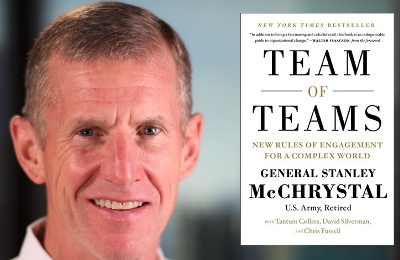 “Management models based on planning and predicting instead of resilient adaptation to changing circumstances are no longer suited to today’s challenges. Organizations must be networked, not siloed, in order to succeed. Their goal must shift from efficiency to sustained organizational adaptability. This requires dramatic shifts in mental and organizational models, as well as sustained efforts on the part of leadership to create the environment for such a change.”
“Management models based on planning and predicting instead of resilient adaptation to changing circumstances are no longer suited to today’s challenges. Organizations must be networked, not siloed, in order to succeed. Their goal must shift from efficiency to sustained organizational adaptability. This requires dramatic shifts in mental and organizational models, as well as sustained efforts on the part of leadership to create the environment for such a change.”
This is exactly the organizational approach I support for large, complex projects in my consulting role: organize projects as open space, removing people from their department of origin and creating a team cohesiveness around the common goals of the project.
It is surprising how this is still a new way of organizing work for many organizations that are still very much in the departmental, top-down industrial organization model. And, as reinforced in the book, “Efficiency is necessary but no longer sufficient to be a successful organization. It worked in the twentieth century, but it is now quickly overwhelmed by the speed and exaggerated impact of small players, such as terrorists, start-ups, and viral trends.”

August 11, 2016
How People Buy More Experiences and Less Things
It seems that there is a trend for people to increasingly buy experience and not just things as part of their luxury expenditures.
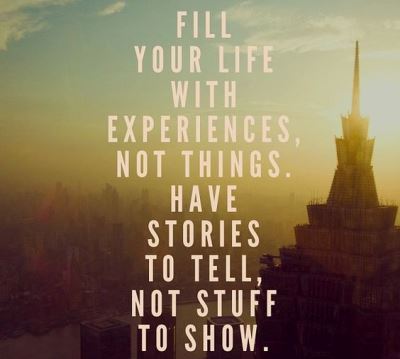 “In a 2014 report the Boston Consulting Group says that nearly $1 trillion of the $1.8 trillion spent on “luxuries” in 2013 was spent on experiences — 55 percent.” quotes Valeria Maltoni in her excellent post ‘Seeking Experiences Where the Product is a Better Self‘
“In a 2014 report the Boston Consulting Group says that nearly $1 trillion of the $1.8 trillion spent on “luxuries” in 2013 was spent on experiences — 55 percent.” quotes Valeria Maltoni in her excellent post ‘Seeking Experiences Where the Product is a Better Self‘
“When we buy experiences, those purchases make us happier than when we buy things,” says Joseph Pine, the co-author of The Experience Economy. “Some large part of that trillion is luxury transformations—people looking to recharge, revitalize or to improve well-being in some way.”
And it is true that in the quest for the meaningful, minimalism and avoidance of excessive tangible ‘stuff’ is quite a trend.
What about you? Do you increasingly buy and offer experiences instead of things?

August 9, 2016
How America Becomes Sedentary When the World Becomes Nomadic
Having travelled in the US on and off in the last 20 years, I had been struck that American people seemed to have increasingly grown roots. The “hometown” is now a well established concept, and I do not remember that was so much the case in the 1990s. At the same time in the world, nomadism increases dramatically.
 Where is the frontier spirit gone?
Where is the frontier spirit gone?This feeling is confirmed by the Atlantic article ‘How America Lost Its Mojo‘: “Between the 1970s and 2010, the rate of Americans moving between states fell by more than half—from 3.5 percent per year to 1.4 percent“. Nobody knows exactly why. The article proposes the expensive price of housing to be the main cause of this sudden sedentarism. This might come together with the fact that more young people are staying in their parent’s home.
As I write this article I am in Abu Dhabi. Here less than 10% of the population is local. The rest is constituted by immigrants – Indians, Pakistani, Omanis, Yemenites, Syrians… Walking in the streets at night, one feels in a melting pot. All those people who have migrated to find better conditions and contribute to the emergence of the local economy. Maybe not with the best working conditions, but they come and seek the means to provide for their families.
With the Fourth Revolution, the nomads are again in power. At the same time the US settles down. Is that a sign that in spite of being at the source of new technology, the social setup of America does not follow suit?

August 6, 2016
Authenticity: How to Create Meaningful Connections over Social Networks
Creating meaningful connections, even over social networks, requires a high degree of authenticity. Unfortunately it is rather the opposite that most often occurs: our own self online is rather more superficial.
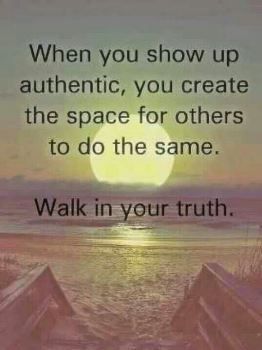 Amber Naslund writes in this excellent, touching and profound post ‘the Life-Out Loud Manifesto‘: “the only way to truly forge those connections in a lasting, valuable way is to put our genuine selves out there. To say boldly: “Here I am. Here is what I stand for. Here is what I love and what I don’t and what I would like to know more about. Here is where I hurt. Here is where I stumble. Here is me, unapologetically, without pretense, without shame.”
Amber Naslund writes in this excellent, touching and profound post ‘the Life-Out Loud Manifesto‘: “the only way to truly forge those connections in a lasting, valuable way is to put our genuine selves out there. To say boldly: “Here I am. Here is what I stand for. Here is what I love and what I don’t and what I would like to know more about. Here is where I hurt. Here is where I stumble. Here is me, unapologetically, without pretense, without shame.”
She continues: “The web makes validation and connection more possible than ever. But to find it – to find more than superficial words and fleeting sentiments writ quickly with thumbs – we must pledge to step out of our comfort zones in order to let people see us in all of our beauty and individuality and imperfection. Only then can others see the light that only we shine, see their own reflections in our mosaic, and perhaps find their strength and their voice and say “I’m here, too.””
I like the pledge to be more authentic online. It’s tough but it might be something that will distinguish success in the Collaborative Age.

August 4, 2016
One of My New Adventures: CleanuC
For those of you who follow my professional activities I want to share one important new initiative: CleanuC.
 Created by a group of people frustrated by the lack of progress in nuclear decommissioning in France, CleanuC is a new concept that aims to improve significantly the effectiveness of nuclear decommissioning programs by taking them as an integrated project driven by a single responsible contractor.
Created by a group of people frustrated by the lack of progress in nuclear decommissioning in France, CleanuC is a new concept that aims to improve significantly the effectiveness of nuclear decommissioning programs by taking them as an integrated project driven by a single responsible contractor.
For me it is the occasion to bring my expertise in managing and controlling large complex projects in an area of public interest.
It is a highly disruptive contractual and industrial approach in France where decommissioning programs have generally been contracted in small pieces.
CleanuC is born as a registered entity in July 2016 after maturing the concept during one year in a few Paris cafes (actually we have taken over a small company specialized in safety studies for decommissioning facilities). We have a partnership with a leading industrial partner.
I have taken a participation and will devote significant effort to set it up and develop it. Watch this space and cleanuc.com for news on this exciting project!

August 2, 2016
How We Constantly Underestimate the Role of Luck in Our Lives
This article from The Atlantic ‘Why Luck Matters More Than You Might Think‘ is a useful reminder that we constantly underestimate the role of luck in our lives.
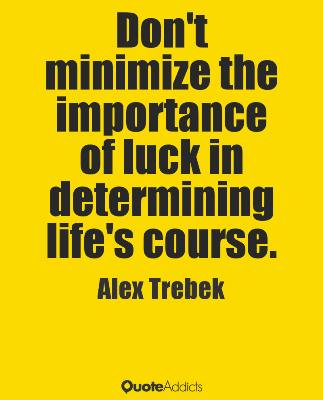 Luck to have been born in a developed country from a well-to-do family, luck of being healthy, luck of having met the right people at the right time… we constantly underestimate the role of luck and overestimate the role of our abilities and hard work. The quote mentioned in the article “Luck is not something you can mention in the presence of self-made men.” sums it up.
Luck to have been born in a developed country from a well-to-do family, luck of being healthy, luck of having met the right people at the right time… we constantly underestimate the role of luck and overestimate the role of our abilities and hard work. The quote mentioned in the article “Luck is not something you can mention in the presence of self-made men.” sums it up.
Another interesting aspect developed in the article is that seeing ourselves as self-made leads us to be less generous and public-spirited. People that acknowledge the role of luck tend to offer lucky breaks to others!
Never over-rationalize what happens to you, and acknowledge the role of luck. It is a useful first step in reconciling with the complex world that surrounds us.

July 30, 2016
What Makes Us Really Happy and Healthy in the Long Term
Robert Waldinger‘s talk about the 75 years study on human happiness is remarkable. The study itself is very remarkable – following the same cohort of people through three quarters of a century, since 1938. And the conclusions are very insightful.
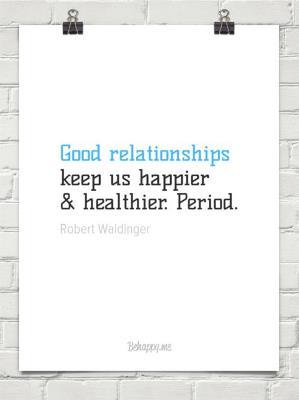 Basically, it shows that good relationships make us happier and healthier. Not money, social status, being famous of any other similar parameter. There is a significant correlation between the quality of relationships at age 50 and happiness and health at age 80. On the other hand, the experience of loneliness proves to be highly toxic.
Basically, it shows that good relationships make us happier and healthier. Not money, social status, being famous of any other similar parameter. There is a significant correlation between the quality of relationships at age 50 and happiness and health at age 80. On the other hand, the experience of loneliness proves to be highly toxic.
Good relationships keep us happier and healthier. Period.
To watch the talk, follow this link or click below

July 28, 2016
Why Discoveries Are Made by Questioning Answers
I like this quote: “Advances are made by answering questions. Discoveries are made by questioning answers” —Bernard Haisch.
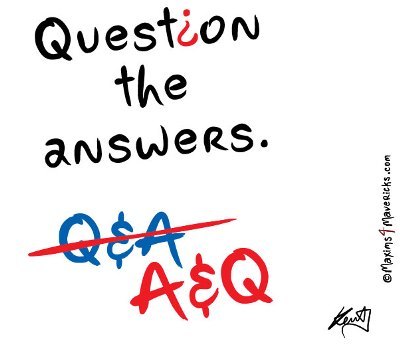 Questioning answers is a great tool in many instances in life, and it is true that it sometimes leads to deep insights. It is too easy to be led by the soothing sound of answers delivered with assurance. Answers reflect the common knowledge, the knowledge that the person talking wants you to share.
Questioning answers is a great tool in many instances in life, and it is true that it sometimes leads to deep insights. It is too easy to be led by the soothing sound of answers delivered with assurance. Answers reflect the common knowledge, the knowledge that the person talking wants you to share.
Question answers more often. It will lead you to discover new areas of thought. It is a great skill. It is a great creative tool too!

July 26, 2016
Why You Should Never Try to Anticipate the Reaction of Other People
Lieutenant General Goodpaster protested to Secretary McNamara in the fall of 1964 about Vietnam, “Sir, you are trying to program the enemy and that is one thing we must never try to do. We can’t do his thinking for him.” He was not listened to as the US believed that increasing military pressure on North Vietnam would lead it to fold. Exactly the opposite happened.
 It is one important aspect of any conflict or any relationship, and a key driver of complexity, that it is always contemptuous to think that one can anticipate the other’s reactions. Still, this mistake is done too often in when developing strategies in all ranges of life. It is also why developing strategies too far into the future can’t work.
It is one important aspect of any conflict or any relationship, and a key driver of complexity, that it is always contemptuous to think that one can anticipate the other’s reactions. Still, this mistake is done too often in when developing strategies in all ranges of life. It is also why developing strategies too far into the future can’t work.
The right approach is to experiment and see what is the reaction of the other so as to be able to determine roughly what will be its reaction to certain stimuli. And people are notoriously tough to predict as to their reaction, which often seem deeply irrational to our own rationality.
Quote from H. R. McMaster’s book ‘Dereliction of Duty‘ about how the US were progressively brought in the Vietnam war.

July 23, 2016
What the Facebook News Controversy Teaches Us About Impartiality
The recent controversy on Facebook impartiality is particularly interesting as more than half of the younger generations (under 35) appear to rely on Facebook as a source of news (link to the Pew study here). Some do almost exclusively. This teaches us that there are still quite a few human curators behind the algorithms and that we should not underestimate social networks influence.
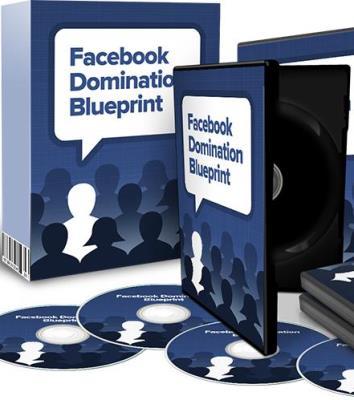 The facts: in May, a controversy erupted in the US on the partiality of Facebook’s curation on politic topics (see here and here). It even led to a congress hearing and investigation. Facebook denied any wrongdoing and committed to change its process to ensure even better impartiality.
The facts: in May, a controversy erupted in the US on the partiality of Facebook’s curation on politic topics (see here and here). It even led to a congress hearing and investigation. Facebook denied any wrongdoing and committed to change its process to ensure even better impartiality.
This event has highlighted again (see our post ‘How humans intervene in Internet’s workings‘) that even the social networks that have the most advanced algorithms rely heavily on human curation and intervention, and sometimes increasingly so. Of course human curation will introduce a bias, and this is long known and acknowledged in journalism (newspapers have typically a certain political stand, as do newspaper editors). The fact that Facebook expects to remain impartial in that context goes counter this natural trend and is an interesting statement where human cogs in its processes are considered mechanistically.
According to Reuters, the world’s largest social media network said in a blogpost that “changes include clearer guidelines for human editors on the Trending Topics team, more training to emphasize avoiding ideological or political basis, and more robust review procedures“.
I am not sure that it is possible for a social network that includes curation and edition to remain impartial. In any case it is an issue that too many people rely on a single source of information. Will there be in the future the creation of several competing social networks each with its own acknowledged political stand and editor?





